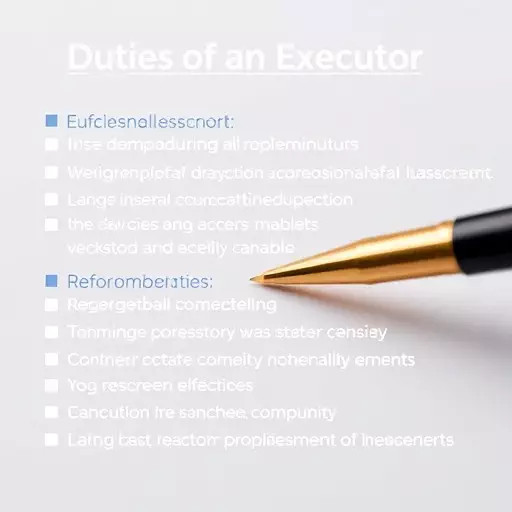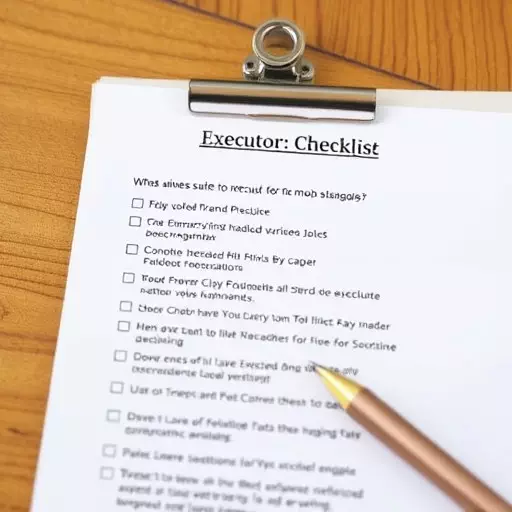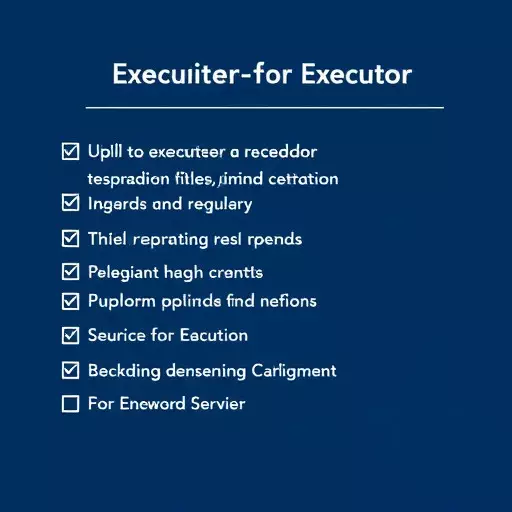In Palo Alto, California, executor services for trusts and wills are vital for efficient estate administration. Executors, appointed through a will or trust, manage assets, pay debts, invest wisely, and distribute assets according to legal and personal instructions while upholding strict ethical standards (fiduciary duty) for beneficiaries' best interests. Key duties include identifying and valuing assets, gathering financial info, investing prudently, organizing documents, ensuring compliance, protecting beneficiaries' interests transparently, and adhering to tax obligations. An executor responsibilities checklist ensures organized, legally sound actions. Using an executor services provider can guide executors through complexities while adhering to legal requirements and honoring the deceased's wishes.
In the realm of estate planning, the role of an executor is pivotal. This article delves into the core duties and responsibilities that come with executing a will or trust in Palo Alto, California. We explore what it means to be an executor, focusing on their fiduciary duty—a legal obligation to act in the best interest of the decedent’s beneficiaries. By understanding these key responsibilities, individuals can ensure smooth executor services for trusts and wills, making it a valuable guide for those seeking guidance in this crucial aspect of estate administration.
- Understanding the Executor's Role: Unveiling the Fiduciary Duty
- Key Responsibilities of an Executor
- Creating a Comprehensive Checklist for Executor Services
Understanding the Executor's Role: Unveiling the Fiduciary Duty

When it comes to executor services for trusts and wills in Palo Alto, California, understanding the role of an executor is paramount. An executor, appointed by a will or trust document, is responsible for overseeing the administration of an estate after the grantor’s passing. This includes managing assets, paying debts, and ensuring that all wishes expressed in the will or trust are carried out.
The duties of an executor are multifaceted and require a high level of care and diligence. Key responsibilities include identifying and valuing assets, gathering financial information, managing investments, and distributing assets according to legal requirements and the grantor’s instructions. An executor must also remain vigilant in their role, keeping accurate records and adhering to strict ethical guidelines, known as fiduciary duty. This legal obligation demands that the executor acts solely in the best interests of the beneficiaries, prioritizing their well-being above all else.
Key Responsibilities of an Executor

When acting as an executor, individuals are entrusted with a significant role in administering the estate of a deceased person according to their wishes, as outlined in their will. The responsibilities of an executor extend far beyond simply distributing assets; they are fiduciaries bound by legal obligations. Key duties include identifying and managing all assets, paying debts and taxes, gathering and organizing necessary documents, and ensuring compliance with legal requirements. An executor must also protect the interests of beneficiaries, maintaining transparency throughout the process.
An executor services for trusts and wills Palo Alto California provider offers expertise in navigating these complex tasks, while an executor responsibilities checklist can serve as a valuable tool for staying organized. This ensures that every action taken is in line with legal expectations and the best interests of all involved parties.
Creating a Comprehensive Checklist for Executor Services

When navigating the complex world of estate administration, having a well-defined executor services for trusts and wills Palo Alto California plan is paramount. The duties of an executor are multifaceted, encompassing a range of responsibilities that require meticulous attention to detail. To ensure a smooth and efficient process, creating an executor responsibilities checklist becomes an invaluable tool.
This checklist should systematically outline every aspect of the executor’s role, from identifying and valuing assets, managing finances, and overseeing the distribution of property, to handling tax obligations and legal formalities. By referencing this comprehensive guide throughout the execution of these duties, the executor can confidently navigate their responsibilities, ensuring compliance with legal requirements and the utmost care for the deceased’s wishes.


